529 health workers and faith leaders join World Vision’s campaign against COVID-19 in South Sudan
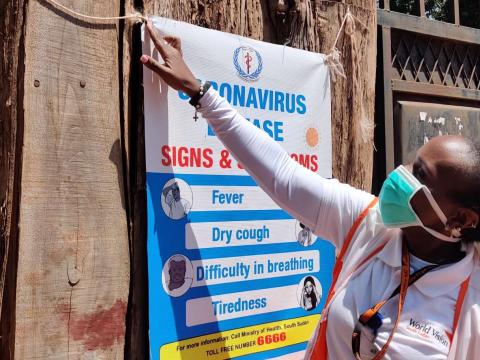
“It seemed a distant reality at first, but now COVID-19’s impact is felt in South Sudan’s communities. After the declaration of cases in the country and news from surrounding countries that we share borders with reached the people, there is a deeper understanding of the pandemic’s threats”, says Enid Ocaya, World Vision’s Zonal Program Manager in Western Equatoria Zone.
The operational zone managed from the capital town, Yambio, has trained 330 community health workers and 199 faith leaders who helped reached out to around 30,000 people. The team, with the support of health workers, has screened over 10,000 people with the use of infrared thermometers.
“The staff are constantly reminded of the prevention messages so they can share them with family members and neighbors. It must start with us”, adds Ocaya.
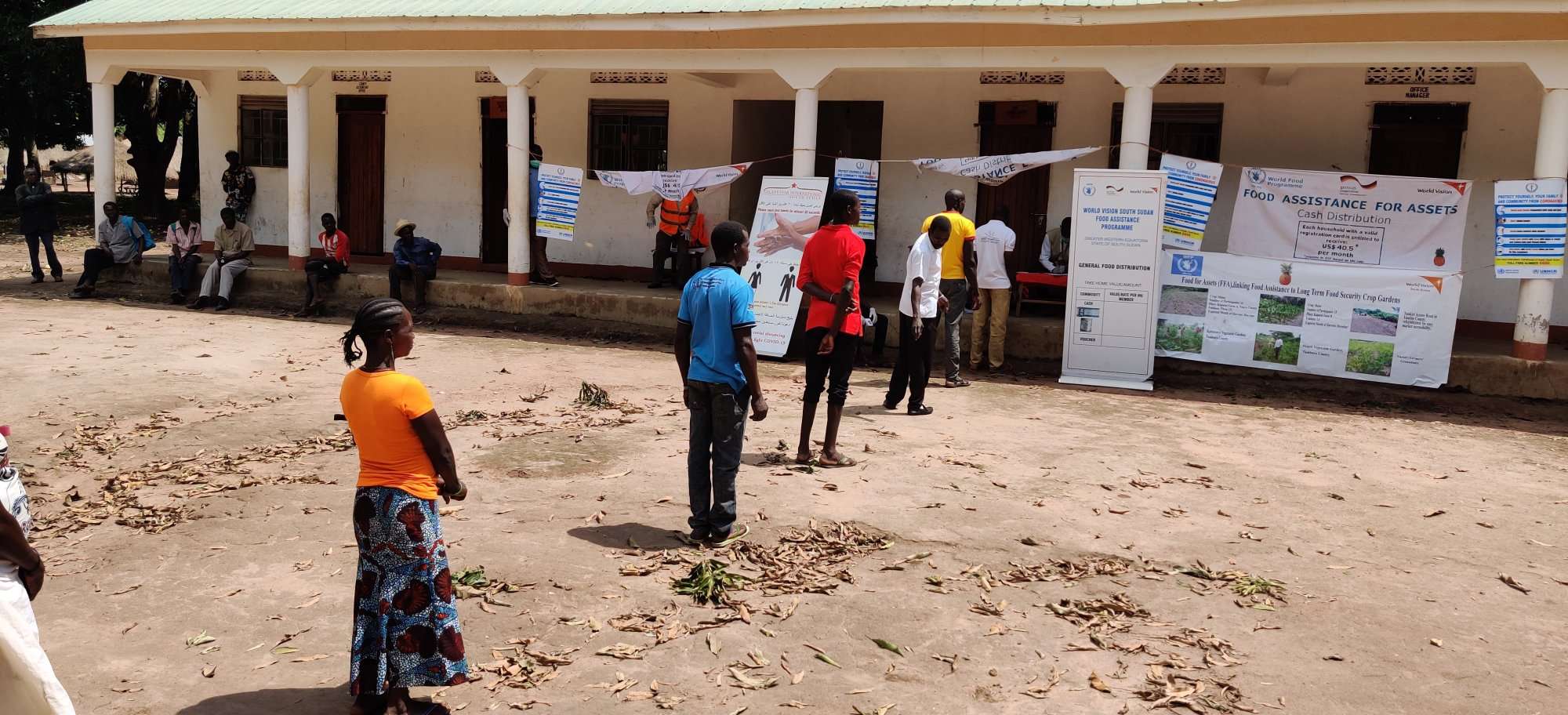
She further explains, “We realized that for the prevention to be more effective, it has to become a way of life for the people. The task force we organized tries harder to visually show people how infection can happen around them in their daily interactions. The team doing this must also fully understand the messages to be able to illustrate to people and answer questions.”
World Vision, being the lead in the Ebola Virus Disease (EVD) Prevention Program in the zone, has now taken the role of migrating the existing structure intended for EVD and adapt the infection, prevention and control process for the campaign against COVID-19.
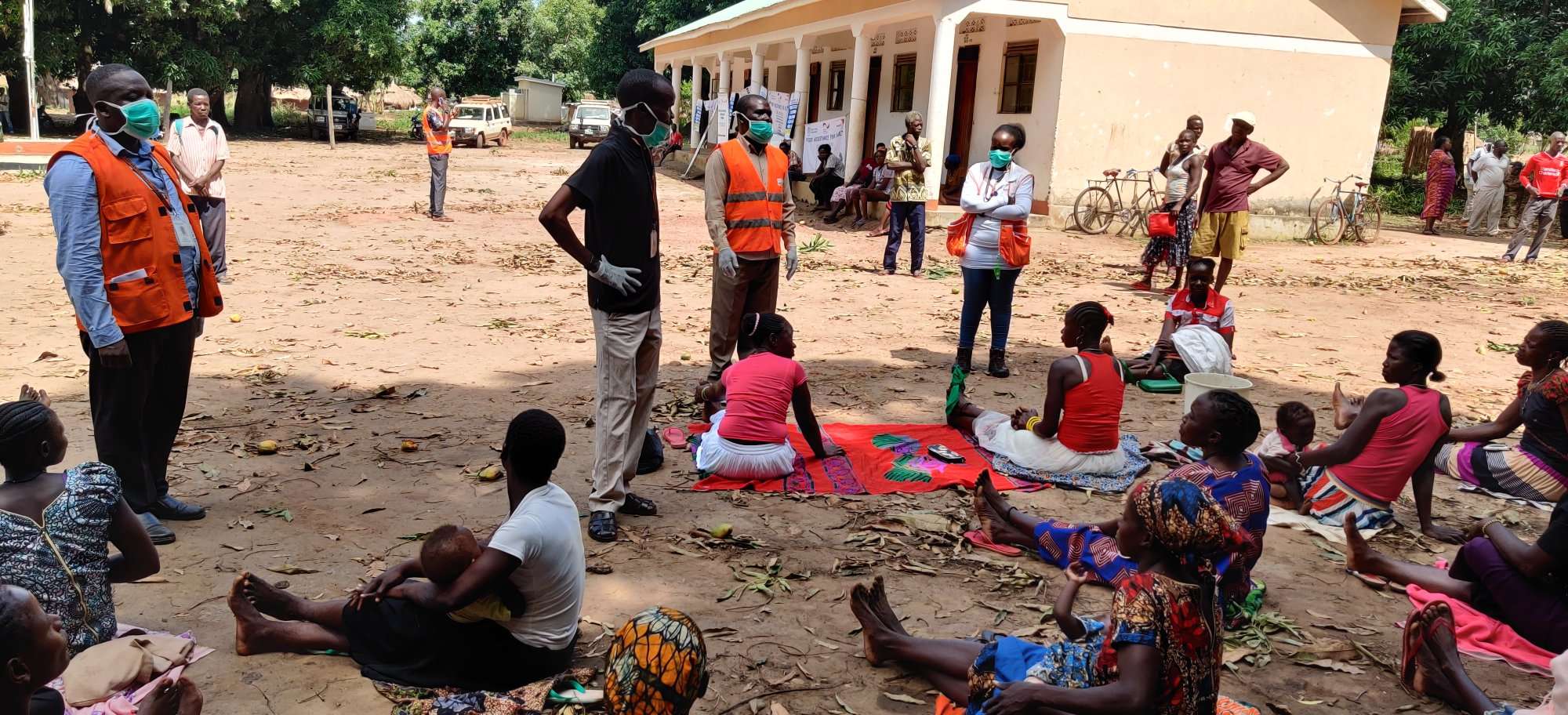
All existing World Vision program teams in the area have worked together to display information materials and banners, established handwashing facilities during activities and key areas and imposed social distancing.
Working with nine points of entries (POE) in the state, some of which affiliated with health facilities), one isolation unit and six holding units, World Vision’s EVD response has screened over 1million people before it was discontinued for lack of cases and threat having been contained.
The best thing, for now, is to get more people and groups to work with us for prevention messages to be disseminated all over the zone especially in remote areas. World Vision being on the ground with partners is better positioned to respond.
However, at the onset of COVID-19, 19 screening areas were established in health facilities in coordination with South Sudan’s Ministry of Health (MOH) and the World Health Organization (WHO).
Ocaya said there are still a lot of challenges ahead as the pandemic impacts communities. She says, “World Vision is very committed to doing the preparedness but we struggle to plan how to handle it on a large scale. The best thing, for now, is to get more people and groups to work with us for prevention messages to be disseminated all over the zone especially in remote areas. World Vision being on the ground with partners is better positioned to respond.”
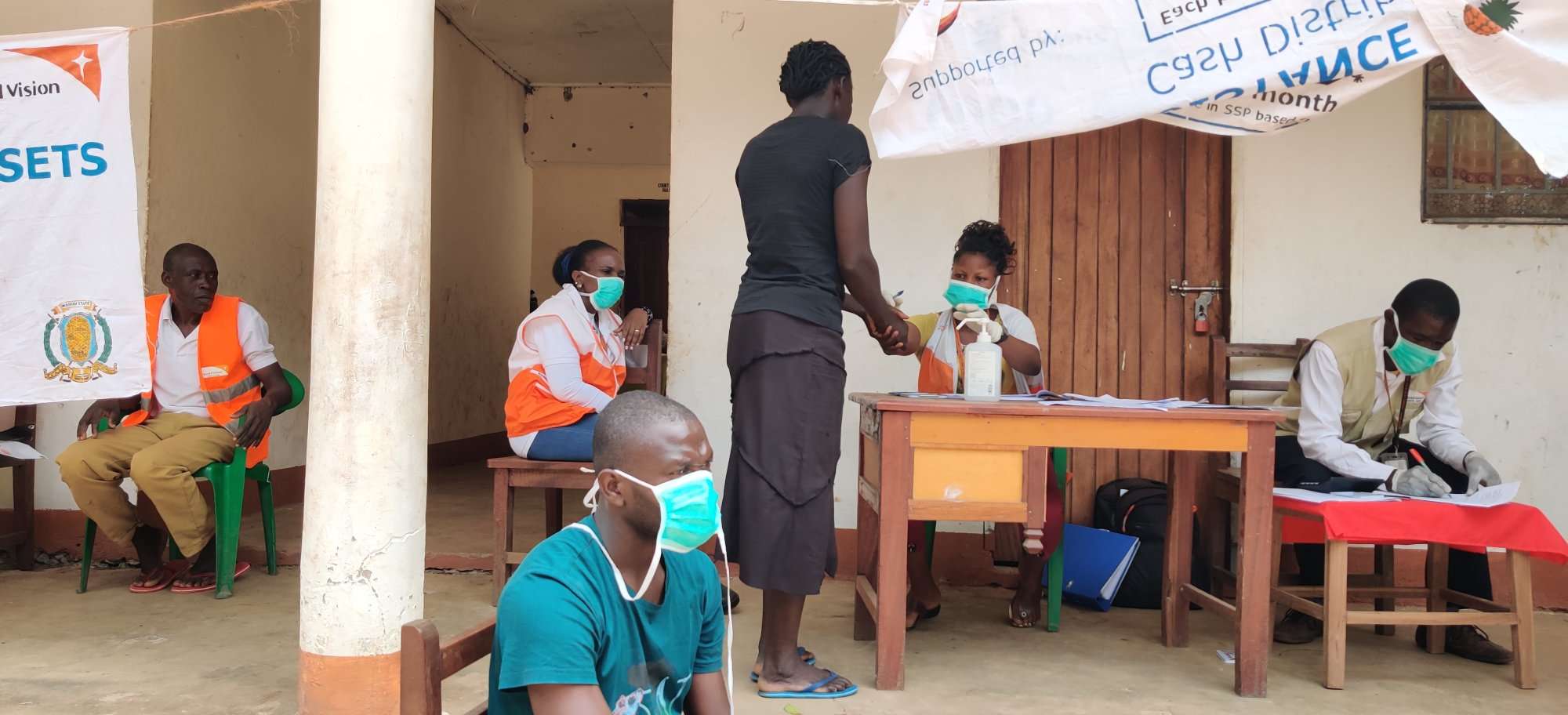
She has noticed a lot of changes in people’s behavior and practices, which she considered very positive for the efforts that the teams are doing. “The people have started discussing COVID-19 in a very informed point of view and many are aware of the need for prevention considering the inadequate health facilities to handle an outbreak. Generally, handshake, which is culturally entrenched in communities, has stopped”, Ocaya explains.
In one of the meetings facilitated by World Vision, one faith leader Pastor Emmanuel Hezekia of the Seventh Day Adventist Church, describing the pandemic says, “Ebola was a child, COVID-19 is an adult”. This showed how much people have now understood the gravity of the situation. The Western Equatoria State has a land area of 79,342.66 km and is divided into 10 counties with an estimated 1.6 million population.
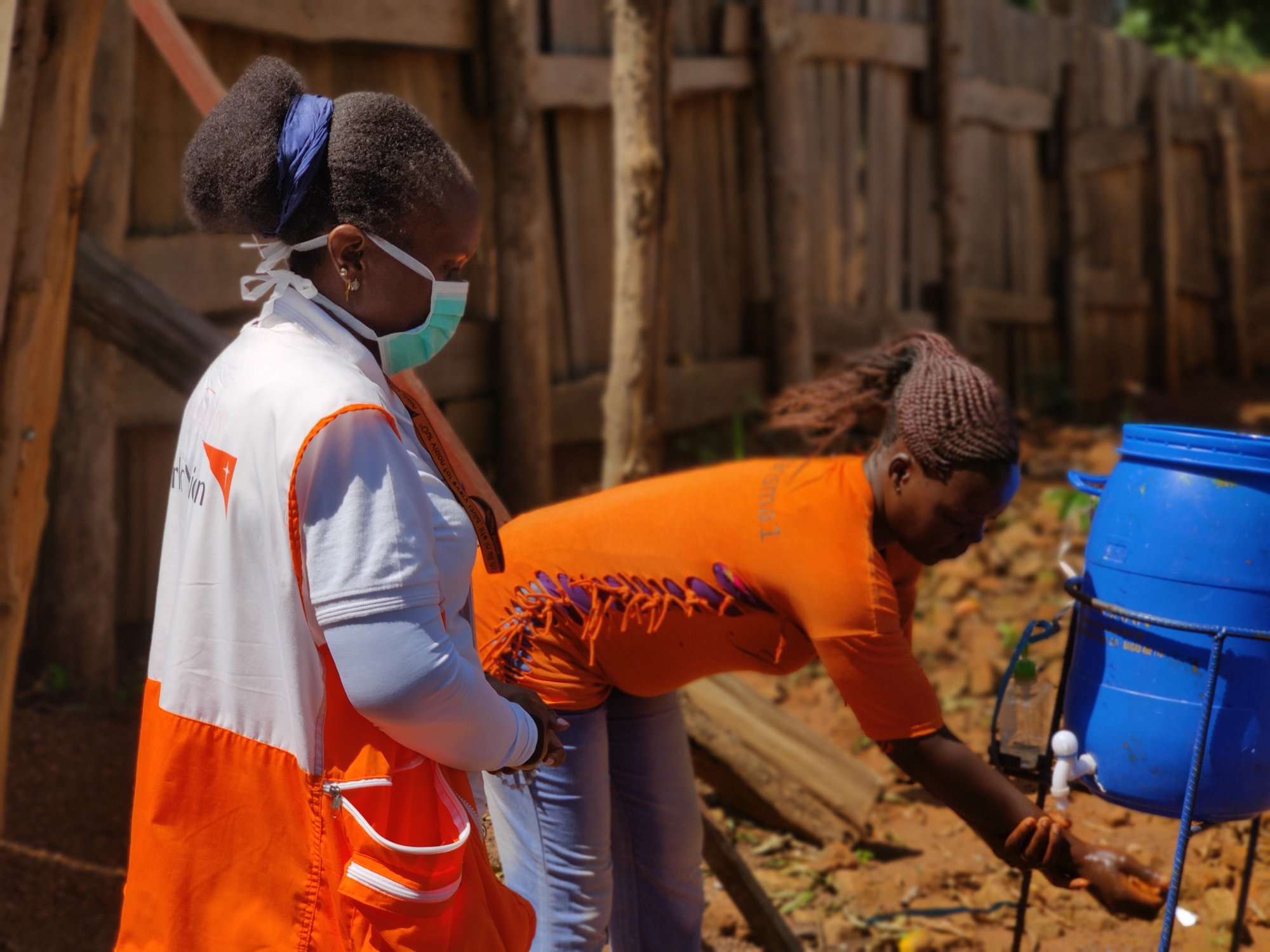
Story by Cecil Laguardia, Communications Manager I Photos by WEQ Staff